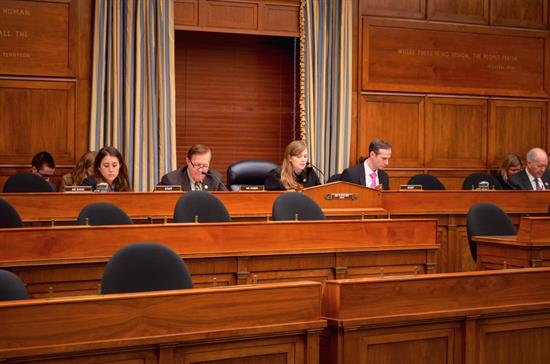Press Releases
Congresswoman Lizzie Fletcher Leads First Energy Subcommittee Hearing as Chair; Delivers Opening Remarks
Washington,
January 15, 2020
|
Rocio Cruz
Congresswoman Fletcher’s opening remarks as prepared for delivery follow: Good afternoon, and welcome to our first Energy Subcommittee hearing of 2020. I am glad to be here today as the new Chairwoman of the Energy Subcommittee and am looking forward to leading us through an important and busy year of hearings and legislative action to help provide clean, reliable, and secure energy resources and services for every American—and for the world. We are here today to discuss the role of the Office of Science at the Department of Energy in fulfilling this mission. The Office of Science is the nation’s premier federal agency that supports research in the physical sciences for energy and other applications. It oversees ten of DOE’s seventeen national labs, and it houses six program offices focused on everything from advanced computing and materials science to biological and nuclear physics research. It is also the home of DOE’s work on climate modeling. The Office of Science plays a critical role in our fight against climate change. It is uniquely positioned to help us reach our shared goals of developing energy that is clean, sustainable, reliable, and affordable. This is no small task. We need everyone working together to achieve this goal, and to do so as quickly as possible. That is why it is essential that we invest our shared resources in this research and that we identify and enable the critical research we need to invest in. In order to develop effective solutions, we need to start with the science. The Office of Science supports a wide range of research efforts to ask the right questions and to find the best answers. And the Office of Science has an important role to play in the advancement of the physical sciences as well. In the past year, scientists and researchers supported by this office have contributed to the development of nanoscale cancer treatments that provide targeted drug-delivery, a Dark Energy Survey that will help answer fundamental questions about why our universe is expanding, and algae that can capture and store carbon dioxide. And those are just a few examples of the various efforts supported by this Office each and every year. Collaboration on these issues is critical. It is what I have witnessed on this committee time and again. And I’ve seen the Office of Science do this successfully. Working with researchers at Rice University in Houston has led to a breakthrough way to use imperfections in lithium-ion batteries, which had typically been expected to degrade battery performance, to make this important technology perform better instead. This is just one of many exciting research collaborations between the Office of Science and the companies and research institutions that call Houston their home. I am glad Dr. Fall is here today and look forward to hearing more about recent developments at the Office of Science, and ways that we can work together to help it achieve its mission. With that, I yield back. |

